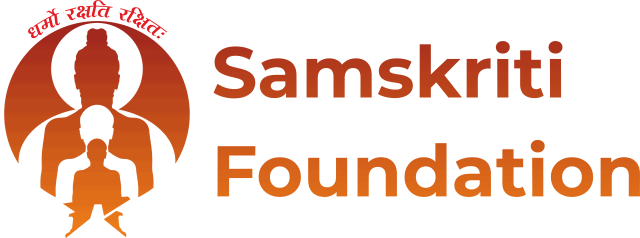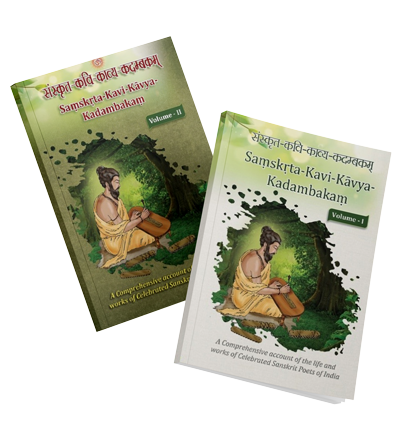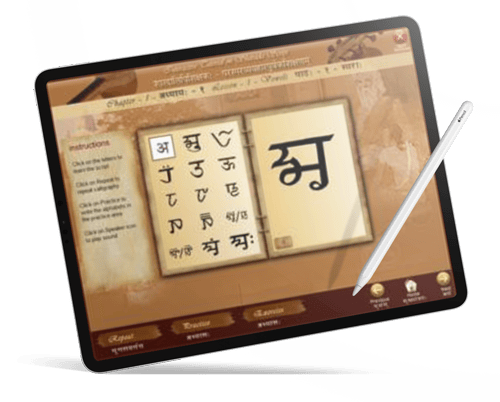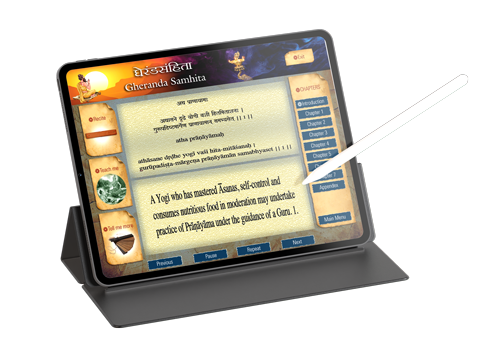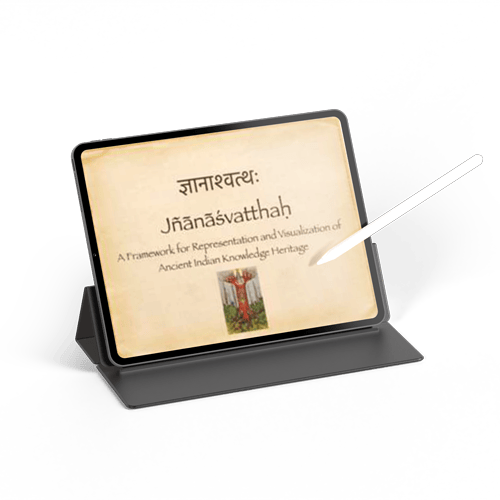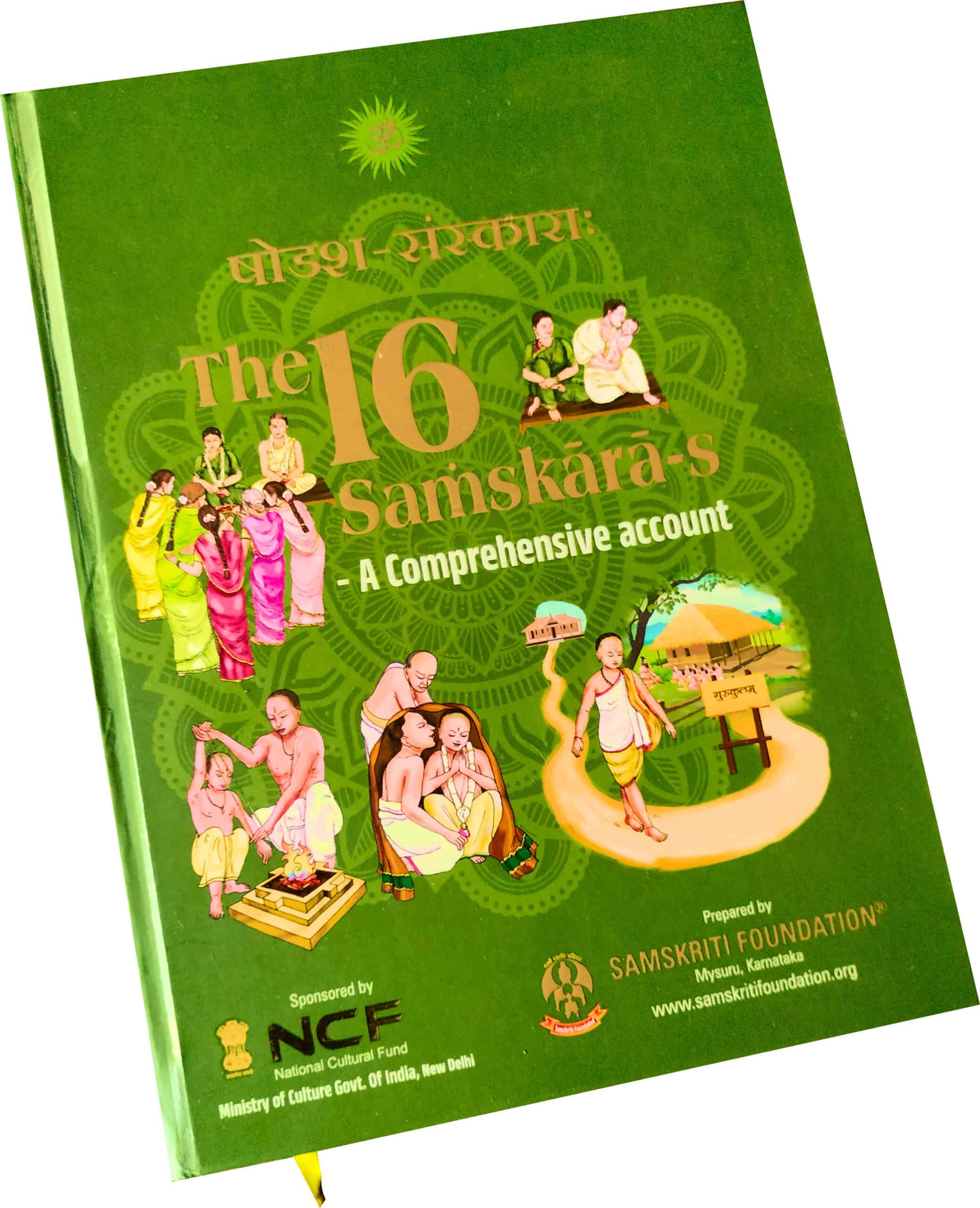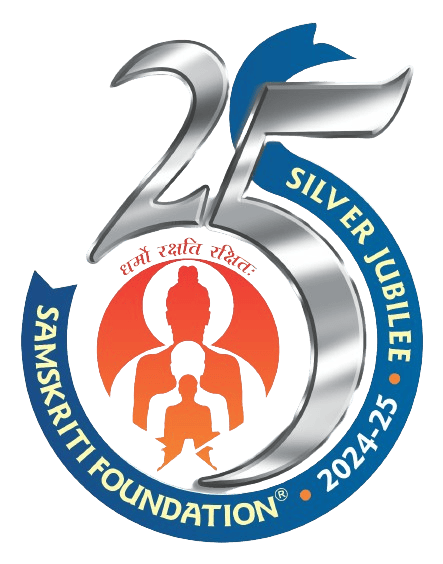1. Samskrta-Kavi-Kavya-Kadambakam (Volume 1 & 2)
A Comprehensive account of the life and works of Celebrated Sanskrit Poets of India
Saṃskṛta Kavi-Kāvyā Kadambakam: A Comprehensive account of the life and works of Celebrated Sanskrit Poets of India” is a remarkable project that serves as a comprehensive guide to the world of Sanskrit literature. The project, available in both book and online portal formats, offers a meticulous compilation of information on 100 celebrated Sanskrit poets, providing a valuable resource for scholars, students, and enthusiasts alike. The uniform template used for presenting information on each poet makes navigation and exploration of this rich cultural history accessible and engaging.
The project’s objective is to bridge the gap in previous attempts to catalogue Classical Sanskrit literature by providing a comprehensive and inclusive account of the poets and their contributions. By presenting the poets in chronological order and providing detailed information on their life, works, and contributions to Sanskrit literature, this project offers a deep understanding of the evolution and significance of this ancient art form. “Saṃskṛta Kavi-Kāvyā Kadambakam” is a monumental achievement that not only preserves and showcases the timeless beauty of Sanskrit literature but also serves as a platform for further exploration and appreciation of this profound literary tradition.
2. Self-Teaching Multimedia Programs for Grantha and Sharda Scripts
Samskriti Foundation® is deeply committed to the preservation of our ancient scripts, which once adorned traditional palm-leaf manuscripts. These intricate scripts, including Grantha, Sharda, Nandinagarai, Newari, and Tigalari, hold an exotic charm. Unfortunately, the knowledge of these scripts is dwindling due to various factors. Addressing this challenge, Samskriti Foundation has ingeniously developed Computer-based Self-Teaching Multimedia Programs tailored for the Grantha and Sharda scripts.
These programs offer an interactive learning experience, significantly reducing the dependence on external instructors. Learners can delve into these scripts at their own pace, transcending the constraints of time and space. The programs are designed to incorporate self-assessment components, ensuring students’ progress and understanding. Moreover, real-time manuscript reading sessions further enhance the learning journey. In essence, this initiative stands as a distinctive and invaluable contribution by Samskriti Foundation to the realm of Manuscriptology, preserving and propagating the legacy of these ancient scripts.
3. Self-Teaching Multimedia Programs for Vedic texts
Samskriti Foundation is dedicated to the preservation of the intricate Vedic oral traditions, through which the vast and profound Vedic texts have traversed generations in a sacred teacher-disciple continuum. However, the custodians of this rich tradition, who transmit these texts with utmost purity, precise pronunciation, diction, and intonation, are regrettably becoming scarce. To address this impending gap, Samskriti Foundation introduces an innovative solution—a Computer-based Self-Teaching Multimedia Program, designed as a pilot project.
This program is tailor-made for learning the quintessential Vedic texts, specifically the five Sukthams, which hold immense significance. By integrating modern technology, this interactive program significantly reduces the reliance on external instructors. Learners can engage with the texts at their own pace, free from the constraints of time and location. The pedagogical approach comprises Devanagari script and English transliteration, bolstered by literal meanings displayed on the screen.
The package offers two dynamic modes: “Recite” for focused practice and “Teach Me” for comprehensive learning. Moreover, the “Tell Me More” section provides a deeper understanding of the latent meanings and essence within the text. This multifaceted program is a stepping stone towards revitalizing Vedic text education, empowering individuals to embark on a transformative journey of Vedic exploration.
4. Jnanasvatthah: Flagship program of the Samskriti Foundation
An extensive knowledge structure encompassing the entirety of Traditional Knowledge, unified under one comprehensive platform:
- The objective is to make traditional texts and media accessible to both the general public and experts alike.
- The goal is to create a repository that encompasses diverse content from various languages and domains of traditional knowledge.
- Emphasis is placed on capturing knowledge from different perspectives across languages.
- Epistemology serves as the foundation for organizing the knowledge within the structure.
- Experts are empowered to connect and link to relevant knowledge through structures like ontology.
- A crowdsourcing-based framework is being developed to capture, tag, and curate content.
- Additionally, a framework is being designed to facilitate the creation of innovative applications using this content.
- The underlying technological support will feature a flexible and extensible architecture.
- Multi-dimensional information access and search mechanisms are being crafted to ensure efficient exploration of the knowledge within the structure.
5. THE 16 SAṀSKĀRAS – A comprehensive account
The concept of Saṁskāra is akin to a hidden treasure within the archaeological depths of ancient Indian culture, transcending temporal and spatial confines. Our intellectual journey aims to penetrate beyond the surface, exploring its dynamic nature and profound influence on Indian society. Delving into its linguistic roots and diverse interpretations, we uncover its rich etymology and multifaceted significance in ancient Indian life.
Saṁskāra-s played a crucial role in individual development within ancient Indian society, offering guidance from conception to the final moments of life, fostering socio-religious unity. Evolving from religious rituals to encompass a spectrum of activities, Saṁskāra-s serve as a bridge between cultural, social, moral, and spiritual realms, purifying individuals and guiding them through life’s complexities towards spiritual development and moral righteousness.
This book titled “THE 16 SAṀSKĀRAS – A comprehensive account” provides an exhaustive overview of the 16 Saṁskāra-s outlined in scriptures, categorizing them broadly into Pre Natal, Childhood, Educational, Householder’s, and Post Life Saṁskāra-s. This exploration isn’t merely academic; it’s a quest to grasp the essence of a concept integral to Indian cultural, spiritual, and social evolution. The book meticulously illuminates the enduring impact of the Saṁskāra’s on our history, acknowledging its role as a cornerstone of Indian culture.
The Philosophy of Education: Bhāratīya-śikṣaṇa-darśanaṁ (in Four Volumes)
This series, Bhāratīya-śikṣaṇa-darśanaṁ, offers a profound exploration of the philosophy of education as envisioned in the ancient Sanskrit tradition. It brings together the educational ideals, values, and methodologies embedded in Bhārata’s timeless heritage. Spanning the Vedas, Smṛtis, epics, Purāṇas, and classical Sanskrit literature, the four volumes aim to illuminate the holistic, spiritual, and practical dimensions of learning in ancient India, highlighting their continued relevance for modern education systems.
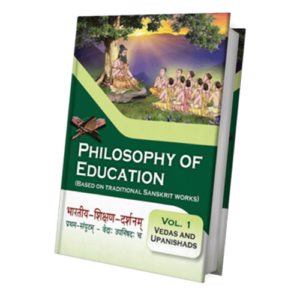
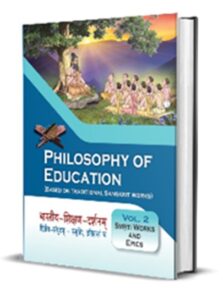
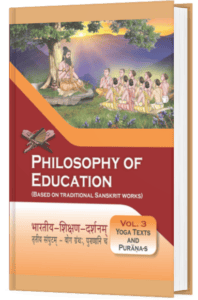
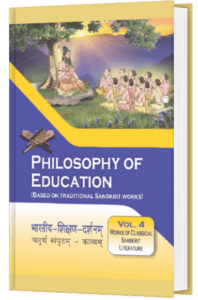
Together, this series offers a comprehensive and systematic study of India’s ancient educational traditions, bridging the sacred and secular dimensions of learning. It celebrates Bhārata’s vision of education as a transformative journey that fosters wisdom, character, and societal well-being. This work aims to inspire educators, scholars, and learners to reimagine education in a global context, drawing from the rich heritage of ancient India.
